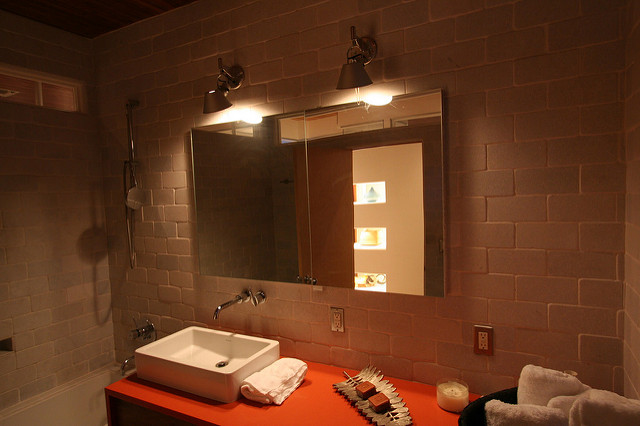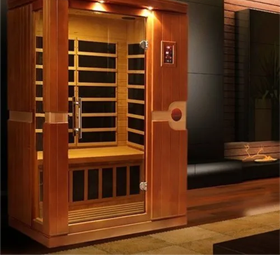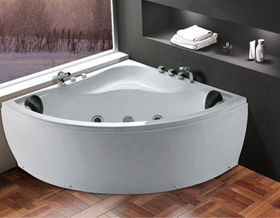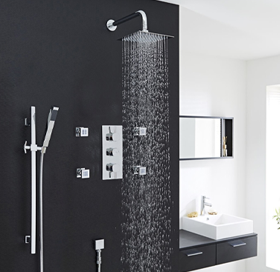Choosing the right material for your bathroom countertop is actually a very important decision. After all, the countertop material will have a profound effect on the value of your home going forward. In this article, we’ll discuss 4 common types of bathroom countertops, including: granite and marble bathroom countertops, laminate and wood bathroom countertops, stainless steel bathroom countertops and tile bathroom countertop.
Granite and Marble Bathroom Countertops
In a master bath, it pays to install granite or marble, which attract buyers at resale and give the vanity top a rich, sleek look. And with affordable “grades” of granite available on the market today, you don’t have to empty your wallet for this feature. You will, of course, spend more on granite than laminate, but the result is a surface that can handle heat and wear. Be advised: granite must be sealed to repel grease (which you could run into in hair products and such). Marble stains easily, while granite stands up to most stains. Source: HGTV
Laminate and Wood Bathroom Countertops
One of the less popular options for bathrooms is wood countertop, such as a butcher block design. Some of the reasons that homeowners are less likely to choose wooden bathroom countertops are that they are associated with kitchen designs, and if they are not properly finished, they may not be entirely moisture resistant. For a better fit, many homeowners choose laminate bathroom countertops, which are versatile and come in many styles and colors. Source: DoitYourself
Stainless Steel Bathroom Countertops
Designed to look like natural stone, solid surface is one of the most popular countertop options available. Known by its brand names such as Corian, Staron, Gilbraltar and Avonite, this easy-to-maintain synthetic product can be molded to fit any design specification. Use a solid-surface material if you’re concerned about mold or mildew. The nonporous, hypoallergenic surface discourages the growth of these allergens. Source: DIYNetwork
Tile Bathroom Countertops
As it does for floors and walls, ceramic tile makes an attractive, durable finish for countertops. It’s available in many colors, designs, and textures. Grout lines that trap dirt and encourage mildew are a major drawback, although new grouts and sealers help alleviate these problems to some degree. Costs range from $10 to $40 per running foot installed. Getting professional results with tile is a challenge for do-it-yourselfers. A slightly irregular look can be appropriate for rustic, unglazed quarry tile, but most other tile varieties demand greater precision. Using pre-grouted tile sheets, or sheets of mosaic tile on a mesh backing, makes it easier to space tiles evenly. Source: NKBA
If you’d like more information, don’t hesitate to contact us!
Contact Us:
Eago Parts
Phone: Toll Free 1-888-556-1912
Calgary, Alberta
Email: info@eagoparts.com








